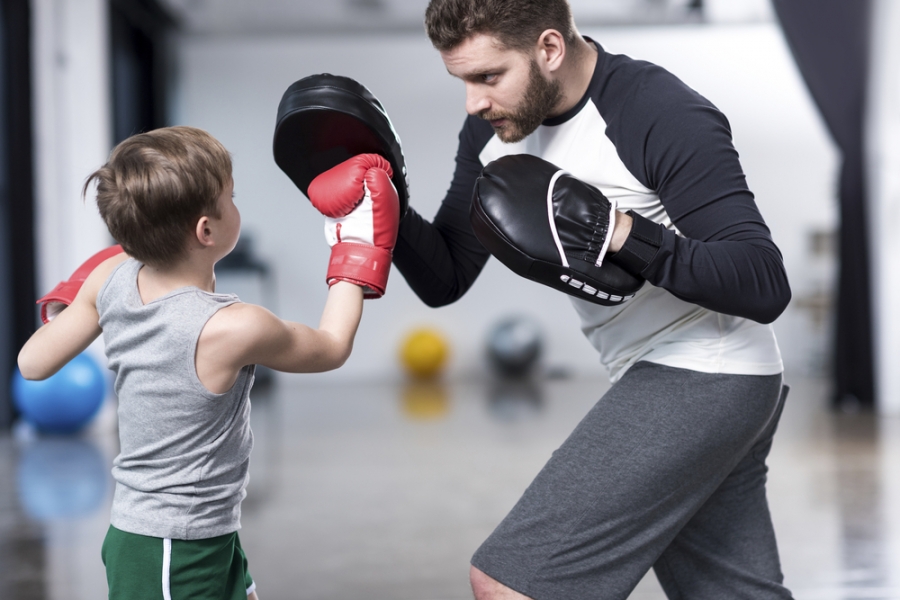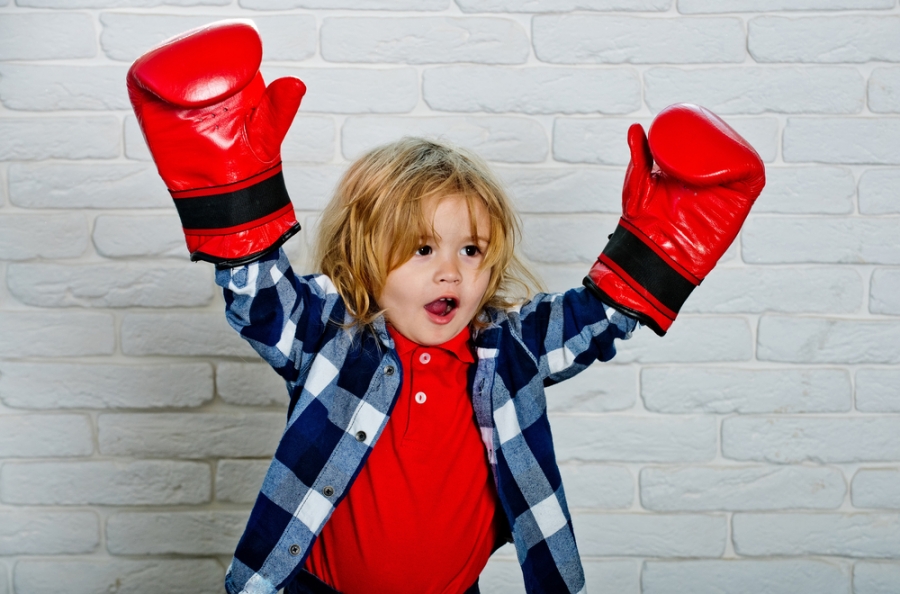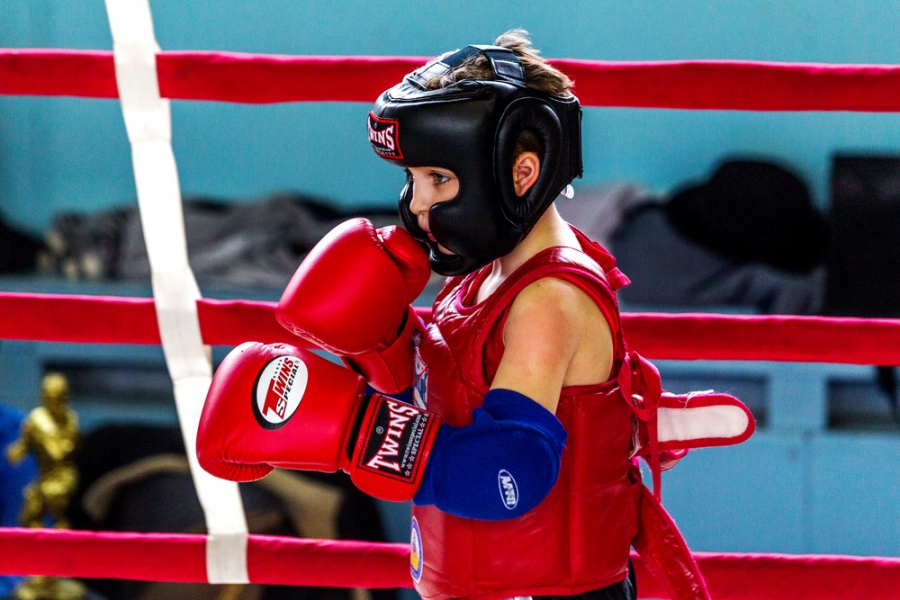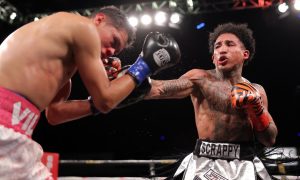For the simple fact that boxing is a contact sport, safety is closely monitored. But the truth is that, compared with many other physical endeavors, boxing is equally as safe for kids, and no athletic endeavor is 100 percent risk-free.
Further, many clubs and training facilities limit youth boxing to non-contact training and require extensive protective boxing gear for every entrant of the ring. So long as your little one is cautious and well-protected, he or she will be safe in training and competition, and may even reap a few added benefits along the way.
Here are a few of the ways that boxing can positively affect your child’s development, both physically and cognitively.
It Helps Reduce Anger
It’s something like an old wives’ tale — hit a pillow (or a punching bag) and you’ll feel your anger float off into the ether. The reality is a bit more complicated, but there is a sliver of truth to that strategy. Experts say that taking aggression out on an inanimate object can provide an instant anger release, but parents should always arm their kids with therapy and other resources so that they learn long-term emotional coping strategies and don’t rely on violence as a relief of anger.
There is evidence to suggest that, for kids who are anxious or depressed, boxing may help boost the mood by providing a rush of endorphins and getting the mind off things that are particularly stressful or traumatic. Children dealing with difficult traumas, stressors or psychological issues may find the sport pacifying. There are even some organizations specifically designed to help kids learn to cope with their struggles through boxing and martial arts.
It Boosts Self-Confidence
There’s no doubt about it: joining a sport at any age, but especially during childhood, can build one’s self-esteem greatly. Why? It all comes down to positive reinforcement, encouragement and friendship. Sports allow kids to excel and, even when they fail, in a positive athletic environment, they teach kids new skills, which can lead to a greater sense of self-worth.
What’s more, the connections that kids make in organized sports — in the arena, it may be your youngster’s coach or her fellow fighters — teach important socialization skills, which kids can take with them outside of the gym and into school, scouts and other activities. It also gives kids a hobby, which allows them to connect with others in and out of the sport.
It Encourages an Active Lifestyle
Perhaps the most obvious reason to enroll your child in any sport is that it teaches them the importance of physical activity and helps them learn to enjoy movement early on. Not only that, but it can also encourage kids to see the importance of and get used to implementing physical activity into their day-to-day routines, which promotes structure and regularity — two things that kids need to thrive.
Boxing is also relatively unique compared to other sports because of the specific focus on body weight and muscle mass. Kids learn the importance of tracking their weight and setting goals early on when they enter youth boxing competitions.
 Because of this, there’s often a very strong focus on health and nutrition in serious boxing facilities. Kids who look up to world-class boxers know that top fighters eat well, and they’ll certainly want to follow suit if their ultimate goal is to win a big title.
Because of this, there’s often a very strong focus on health and nutrition in serious boxing facilities. Kids who look up to world-class boxers know that top fighters eat well, and they’ll certainly want to follow suit if their ultimate goal is to win a big title.
Another facet of early athleticism is that it gives kids direction in the future. Perhaps your child will connect so much with the sport that he or she will practice it throughout their adolescence and adulthood, possibly even turning it into a career or at least maintaining an interest in the field as they grow up.
It Teaches Vital Self-Defense Skills
While there’s little evidence to suggest that it’s beneficial to “toughen up” your youngster — in fact, experts say that approach is more damaging than beneficial — there’s ample evidence showing that teaching vital self-defense skills can positively impact cognitive and physical development. The goal shouldn’t be to teach kids how to knock out a bully in one fell swoop, but to train them in potentially life-saving offensive and defensive skills that could get them out of threatening scenarios.
Self-defense classes designed specifically for kids do exist, but they’re a bit more limiting than traditional boxing because they don’t necessarily teach youngsters the fundamentals of the sport, but instead focus on how to endure real-life violent scenarios. Whether it’s a boxing club or a special self-defense program, kids come away understanding how to protect themselves and how to enter challenging or frightening situations with confidence and authority.
It Helps Kids Become Good Sportsmen
There’s no doubt about it: competition is good for kids. Experts say that squaring up with an opponent helps kids learn empathy, tenacity and the ability to share. It can also prepare them for real life and arm them with the skills they need to stand out and excel, even when they must go up against people who may be more successful than them in some ways.
What sets boxing apart from many other sports is that the competitions are one-on-one. Learning how to be a good member of a team is important, and certainly something that little ones should learn early, but face-to-face competition has its own set of benefits, and can help kids learn to respect others in a more intimate competitive setting.

Should You Sign Your Child Up for Boxing?
As long as you’ve found a well-vetted youth boxing center, and your child shows an interest in the sport, there’s no reason not to let him or her give it a go.
Another good option is to invest in some youth boxing equipment, ideally a pair of kids’ boxing gloves and a kid-sized punching bag, and let them experiment at home. With the right attitude and training, kids are sure to come away with some essential life skills that will help to prepare them for their futures.
Header photo by A_Lesik / Shutterstock.com



























